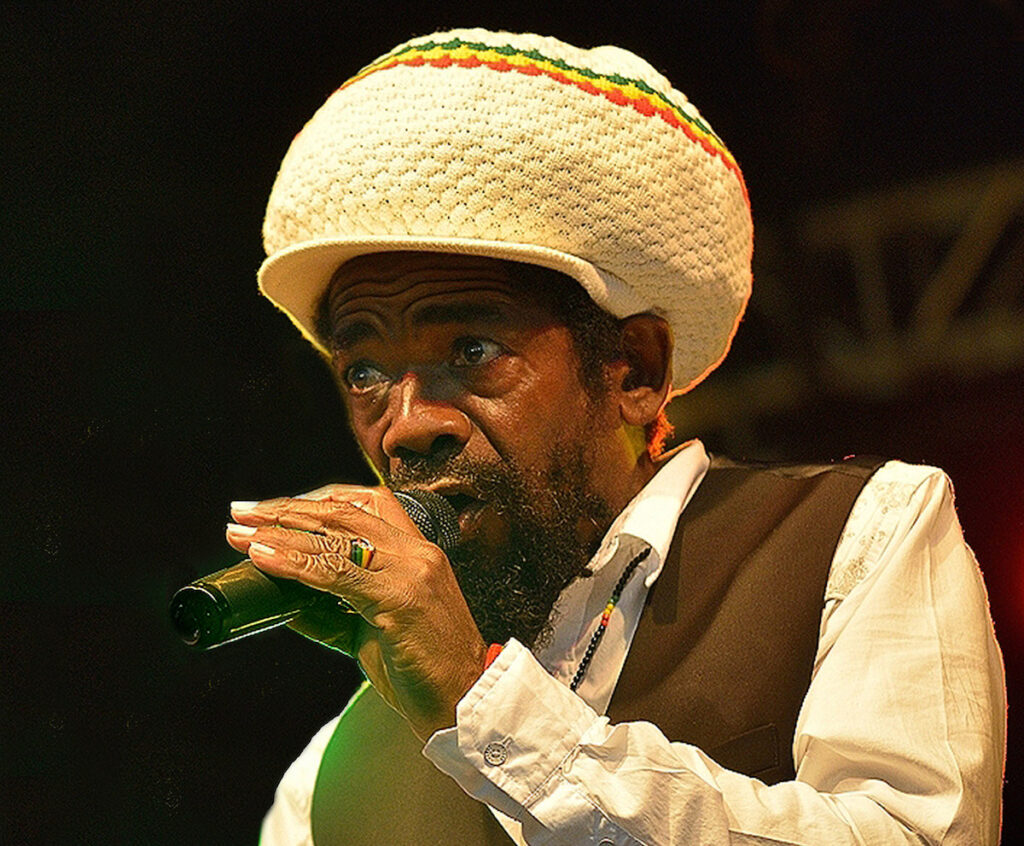
Welcome to the melodic world of Cocoa Tea, a reggae artist whose smooth voice and socially conscious lyrics have made him a beloved figure in the reggae community and beyond. This guide is designed for those new to Cocoa Tea’s music or anyone looking to delve deeper into the life and career of one of reggae’s most enduring voices.
Early Life and Musical Beginnings
Born Calvin George Scott on September 3, 1959, in Rocky Point, Clarendon, Jamaica, Cocoa Tea was drawn to music from a very young age. Inspired by the vibrant cultural sounds of his homeland, he began singing in his local church choir, laying the groundwork for what would become a fruitful musical career. The nickname “Cocoa Tea,” derived from his love for the hot beverage, would later become his stage name.
Rise to Stardom
Cocoa Tea’s professional music career began in the late 1970s after he moved to Kingston, the beating heart of Jamaica’s music scene. He recorded his first songs at the age of 14, but it wasn’t until 1983 that he saw his first major success with the release of “Lost My Sonia,” a song that became a hit in Jamaica and laid the foundation for his popularity. This early success was soon followed by a series of hits that cemented his reputation as a talented reggae artist.
Signature Style and Vocals
Cocoa Tea is known for his distinctive, smooth vocal style that effortlessly flows over reggae rhythms, often infused with elements of dancehall and roots reggae. His ability to blend different styles while maintaining a strong roots reggae base is one of his standout traits.
Key Albums and Tracks
To truly appreciate Cocoa Tea’s contribution to reggae, it’s essential to explore some of his key works:
1. **”Weh Dem A Go Do…Can’t Stop Cocoa Tea” (1984)** – This early album showcases Cocoa Tea’s roots in reggae and includes some of his foundational hits.
2. **”Rikers Island” (1990)** – Named after the notorious prison, this album features title track “Rikers Island,” which became a massive hit and is a staple in Cocoa Tea’s repertoire.
3. **”Israel’s King” (1996)** – This album highlights his Rastafarian beliefs and includes spiritually uplifting tracks that resonate deeply with his audience.
Each album represents a different phase of Cocoa Tea’s career and highlights his versatility as an artist.
Collaborations and Impact
Throughout his career, Cocoa Tea has collaborated with many other reggae artists, including Shabba Ranks and Cutty Ranks, enhancing the richness of his musical output. His collaborations often bridge the gap between roots reggae and the more modern dancehall style, showing his adaptability and relevance in the evolving music scene.
Social and Political Themes
Cocoa Tea’s lyrics frequently address social and political issues, reflecting his deep concern for justice and equality. Songs like “Barack Obama,” celebrating the election of the U.S. president, exemplify his engagement with contemporary events and his use of music as a platform for social commentary.
Legacy and Continuing Influence
Cocoa Tea’s influence extends beyond the boundaries of Jamaica. His music has been embraced globally, resonating with audiences for its authentic sound and meaningful lyrics. As a veteran in the reggae scene, he has also played a mentorship role to younger artists, helping to guide the next generation of reggae musicians.
Conclusion
Cocoa Tea’s career is a testament to the enduring appeal of reggae music. His smooth vocals and poignant lyrics have not only entertained but also inspired and provoked thought among listeners worldwide. For those new to his music, Cocoa Tea offers a rich blend of the traditional and contemporary, providing a perfect entry point into the world of reggae.
Whether you are a seasoned reggae aficionado or just beginning to explore this genre, Cocoa Tea’s music promises a fulfilling and enriching experience, showcasing the power of reggae to move and motivate across decades. Ignite your passion for reggae music and style with our handpicked selection of tees. Get yours here: https://zionwake.com/